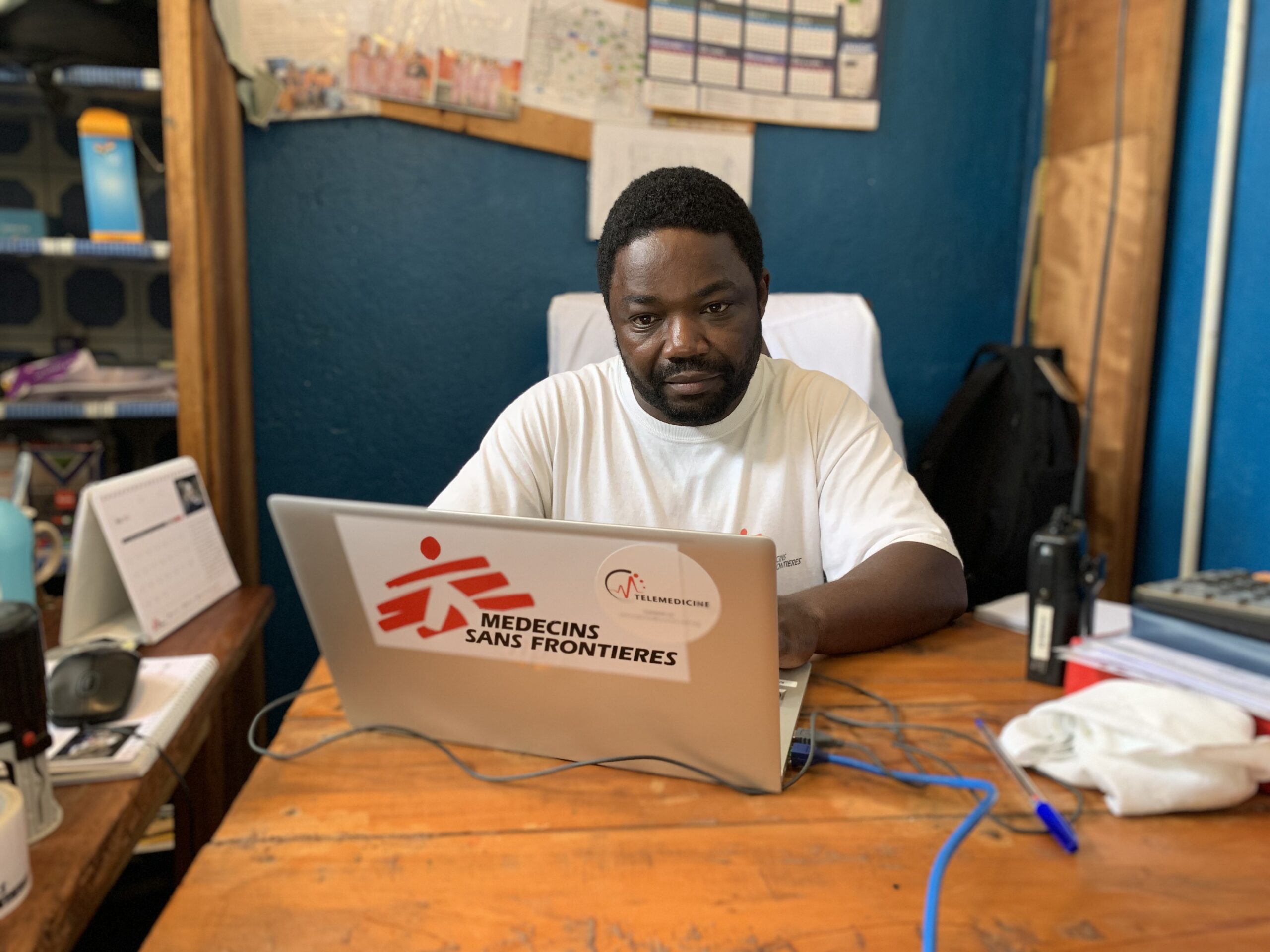Telemedicine
Telemedicine allows remote medical teams to consult with a whole network of experts whenever they are confronted with cases that go beyond their immediate capacities.
With no access to advanced diagnostic tools or specialist expertise, medical workers in places that are more difficult to access or remote often have limited abilities to fully understand many of their patients’ more complex symptoms and therefore can’t necessarily always provide advanced lifesaving care. Doctors Without Borders/Médecins Sans Frontières (MSF) began introducing telemedicine into its field operations in 2010.
Scaling up new technologies can be difficult at the best of times, and the fact that much of MSF’s work involves urgent crisis response in low resource settings has provided additional challenges. Over the last few years, thousands of cases have been managed using MSF’s telemedicine services — representing thousands of patients who would otherwise have not received the kind of critical clinical diagnoses that are often taken for granted in places with more advanced health systems.
Those numbers alone suggest that telemedicine can play a fundamental role in MSF’s humanitarian mission, and help the organization deliver needed healthcare to places where there is otherwise little or no access to medicine.
What is telemedicine?
Telemedicine helps break barriers for access to medical care. It provides improved speed and accuracy for healthcare services in areas that are more difficult to access. It also allows experts and specialists to be available in areas through the service – this includes remote areas and non-remote areas. Telemedicine uses MSF’s global connectivity to help bridge the gap between medical care in remote areas and large hospitals.
Telemedicine offers healthcare providers the capacity to directly connect with the specialist expertise they need for their patient(s). This occurs primarily via an asynchronous system (Case Management), and increasingly via real-time clinical case discussions. The program also provides a secure messaging application to MSF health care providers to exchange medical information in a secure manner and continues to develop a strong internal and external community of practice that enables MSF practitioners to learn from one another.
MSF uses telemedicine software that allows medical professionals to manage remote medical information and medical consultations with maximum confidentiality.
The system uses the most appropriate available technologies to offer secure services for MSF contexts of operations. MSF continues to grow its pool of engaged volunteer specialists worldwide.
How does it work?
Telemedicine is an interconnected platform that allows data to be exchanged in order to provide medical care for patients in remote areas. A medical team can upload data such as images to the MSF platform where a participating specialist is able to access the data and help make a diagnosis.
This is applicable to the case management service of the telemedicine program: data is sent to a network of specialist consultants who can provide additional information to the doctor in the field. Telemedicine provides greater knowledge-sharing and can be tailored to a project’s needs.
The system ensures data privacy of patients and protection of medical data, reduce medical isolation of international and national medical personnel, and contribute to achieving high levels of medical quality and access, especially in remote settings. Moreover, telemedicine contributes to better patient care and reduces the number of referrals.
MSF has the ambition for telemedicine to be widely accessible, reliable and to consistently provide high quality support.
Why is it important?
It allows us to treat more patients and provide more life-saving medical care.
The great advantage of telemedicine is that our patients, despite being treated in places with limited resources, can access specialized care. Currently, widespread internet access in MSF field projects helps bridge the gap between the level of care in the field and large medical centres.
MSF’s current model of humanitarian medical intervention often requires qualified international medical personnel to be directly on the ground. With telemedicine, the practical limitations of that approach can potentially be mitigated, not only by virtually connecting experts from anywhere on the globe, but – more significantly — bringing expertise itself to the project sites.
What can it deliver?
- Easy access to expert advice
- Easy access to specialists
- Quick answers to various medical questions (typical responses are between 24-48 hours)
How does MSF deliver it?
- A global network MSF regional implementors and specialists
- Through smartphone(s) and portable devices
- Supported through a consolidated central MSF reference centre with 24-hour support
How to help?
MSF’s telemedicine specialist network is a vast group of over 400 medical and clinical specialists worldwide who support telemedicine services on a volunteer basis and contribute actively to MSF’s work. The program is always looking for more specialists to support MSF teams using their relevant expertise!
You can learn more about the qualifications required to become a volunteer for Telemedicine and the different telemedicine services you can support with by visiting our website.
